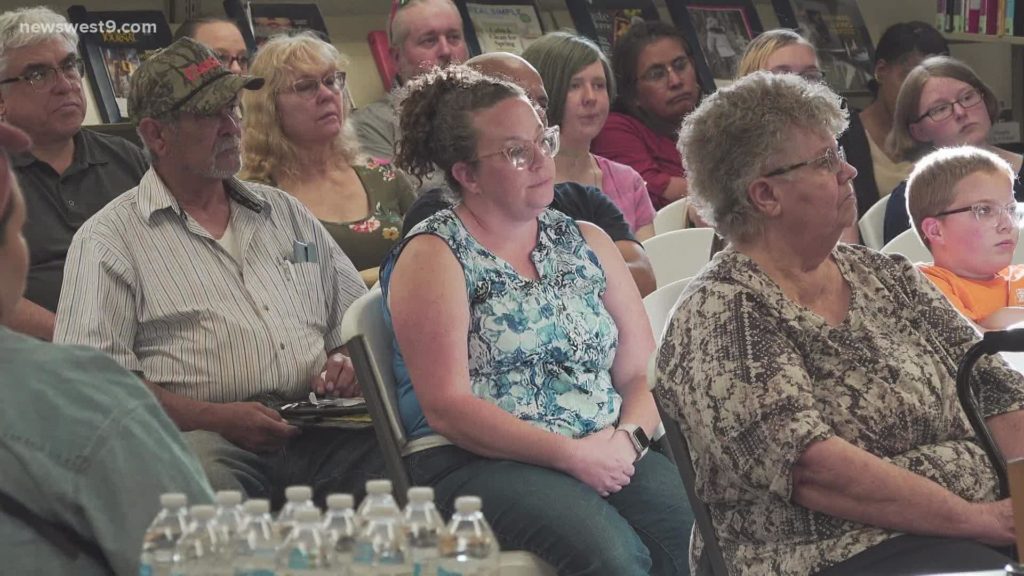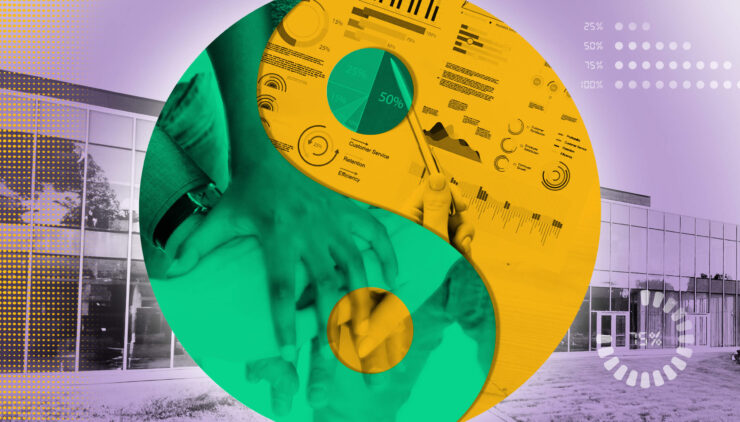Engaging the community
The best public library strategic plans and community needs assessments result from bringing people together to build a shared vision. You get there through intentional engagement with stakeholders, partners, and residents—and community conversations and surveys are your main tools for learning their diverse perspectives.
We'll help you understand the relative benefits of focus groups, online surveys, and telephone surveys and select the best options for your library.
Focus groups build on the conversation
Focus groups consist of a small number of people invited into the room for a gently guided conversation. Participants can bring up new ideas and respond to each other's perspectives. The facilitator asks probing questions and follows the conversation to new insights.
While the number of people who participate in each session is low, with the right up-front work focus groups can connect the library with representatives of a range of key groups, such as teens, educators, young professionals, older adults, and caregivers of young children.
Focus groups are good when you want to:
- Probe one or two specific issues in-depth
- Garner perspectives from target groups, including underserved communities
- Ask follow-up questions and uncover blind spots
- Save money, compared to a telephone survey, and support historically underserved populations, especially if your community's digital divide means an online survey would be likely to miss key voices
- Save time (focus groups can often be completed two to three weeks more quickly than surveys)
Focus groups won’t provide:
- Quantitative or statistically reliable data (you cannot make broad inferences about community-wide sentiment from focus group responses)
- A signal that you are open to input from all who wish to participate
- A chance to collect opinions on many different issues
A community meeting or town hall offers another way to hold conversations. While a larger and self-selected group makes it harder to target input from specific demographics, the community forum lets you signal openness to all input. You're able to engage with more people and employ activities that can spread awareness and excitement, in addition to generating useful feedback.

Surveys spread the word and get quantifiable data
When you use surveys you throw open the doors to community feedback. You can survey many more people than you can bring into the room for focus groups or even town halls, and you can solicit opinions about a wider range of topics.
When we create a survey, we work closely with the Strategic Planning Committee to develop a personalized questionnaire that dives into topics such as:
- Primary motivations for using the library
- Barriers that prevent some community residents from using library services
- Levels of satisfaction with specific elements of library service (facility, programming, collections, technology access, etc.)
- Roles that the community most looks to the library to fulfill
- Level of interest in potential new program, service, and technology offerings
- What might entice residents to use the library or use it more often
- How residents prefer to receive library communications.
To help you decide which survey format is best for your situation, we'll examine the two main types used for library strategic planning: online surveys and telephone surveys.
Online surveys communicate openness
Conducting an online survey is a cost-effective way to give voice to anyone who wants to participate, and it sends the message that the study is inclusive and transparent. Importantly, it can become the occasion for raising overall public awareness and understanding of the wide array of library services.
While they come at extra expense, paper and translation options can help you cross digital and linguistic divides.
Online surveys are good when you want to:
- Collect broad, quantifiable input while keeping costs down
- Signal openness to feedback
- Spread awareness about library services
- Offer convenience (takes just 8-12 minutes and can be done at respondents' chosen time)
- Collect perspectives on a wide array of issues
Online surveys won’t provide:
- The chance to ask follow-up questions or probe individual issues deeply
- The ability to effectively solicit participation from non-users and identify input from underserved groups
- Statistically significant and projectable data
Telephone surveys make direct contact
A telephone survey is the best method of soliciting community feedback from both users and non-users. In many places, internet access is uneven, transit poses a barrier to facility access, and pocket communities are isolated from broader channels of communication; the telephone survey is the best way to surmount these and other barriers to resident participation.
It also delivers the highest quality data about community opinions and issues.
Telephone surveys are good when you want to:
- Reach non-users; by directly contacting residents, telephone surveys make it clear to non-users that they don't have to have direct experience with the library to provide relevant, and appreciated, feedback about their needs
- Collect statistically reliable data that can be projected across your population
- Hear from a more representative sample of your service area (while all surveys tend to skew older and female, the random sampling used in telephone surveys helps make the skew less pronounced than in paper and online surveys)
Telephone survey won’t provide:
- Low cost
- Quick turnaround (particularly during election years)
Choosing between a focus group or survey depends on your circumstances
- Are you looking for quantitative data about a variety of issues or deep insights on a particular topic?
- Do almost all residents have reliable internet access?
- Do you need statistically reliable, projectable data? (And do you have the necessary budget?)
- Is it important that you reach non-users and/or specific target groups?
- How much time do you have for planning?
In an ideal world, you'll employ an online survey, a telephone survey, community meetings, and focus groups. They are distinct methodologies with different benefits and outcomes, and used in combination they will provide the most comprehensive view of your community.
In addition to providing complementary kinds of information, when you employ multiple methodologies, you can use the results of one to enhance the other(s). Survey data can reveal topics to delve into during a community meeting, or focus group input can guide the creation of a survey questionnaire.
Sometimes budget or timing constraints will influence your selections. The details of your library's situation and goals will determine which tradeoffs are right for you.
At Ivy Group, we have experience working with libraries—and budgets—of every size. If you want to talk over your options for reaching your research and engagement goals, we'd be happy to chat about your situation.
